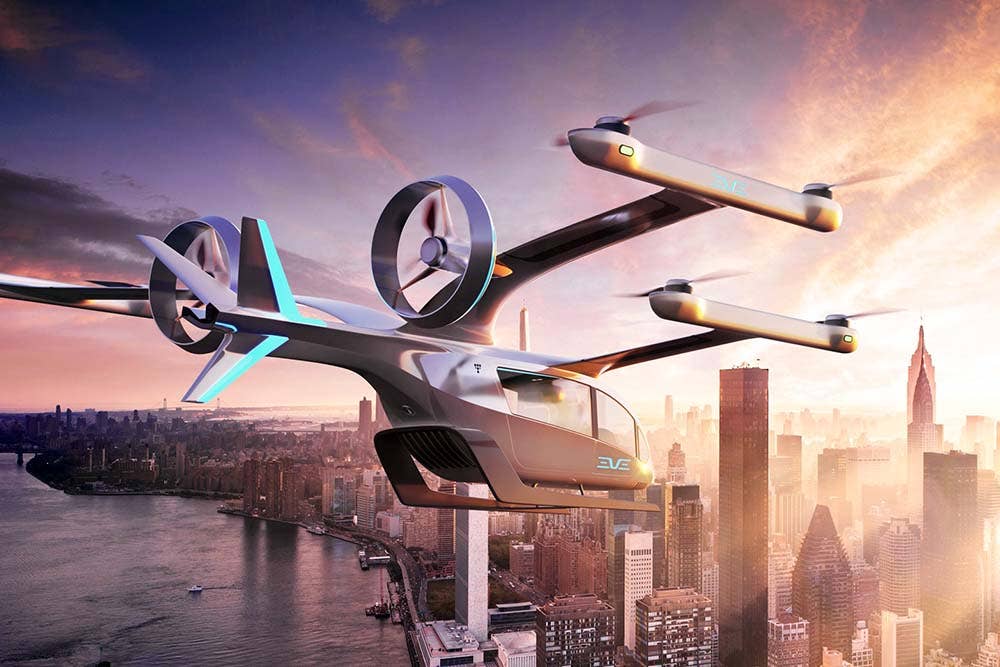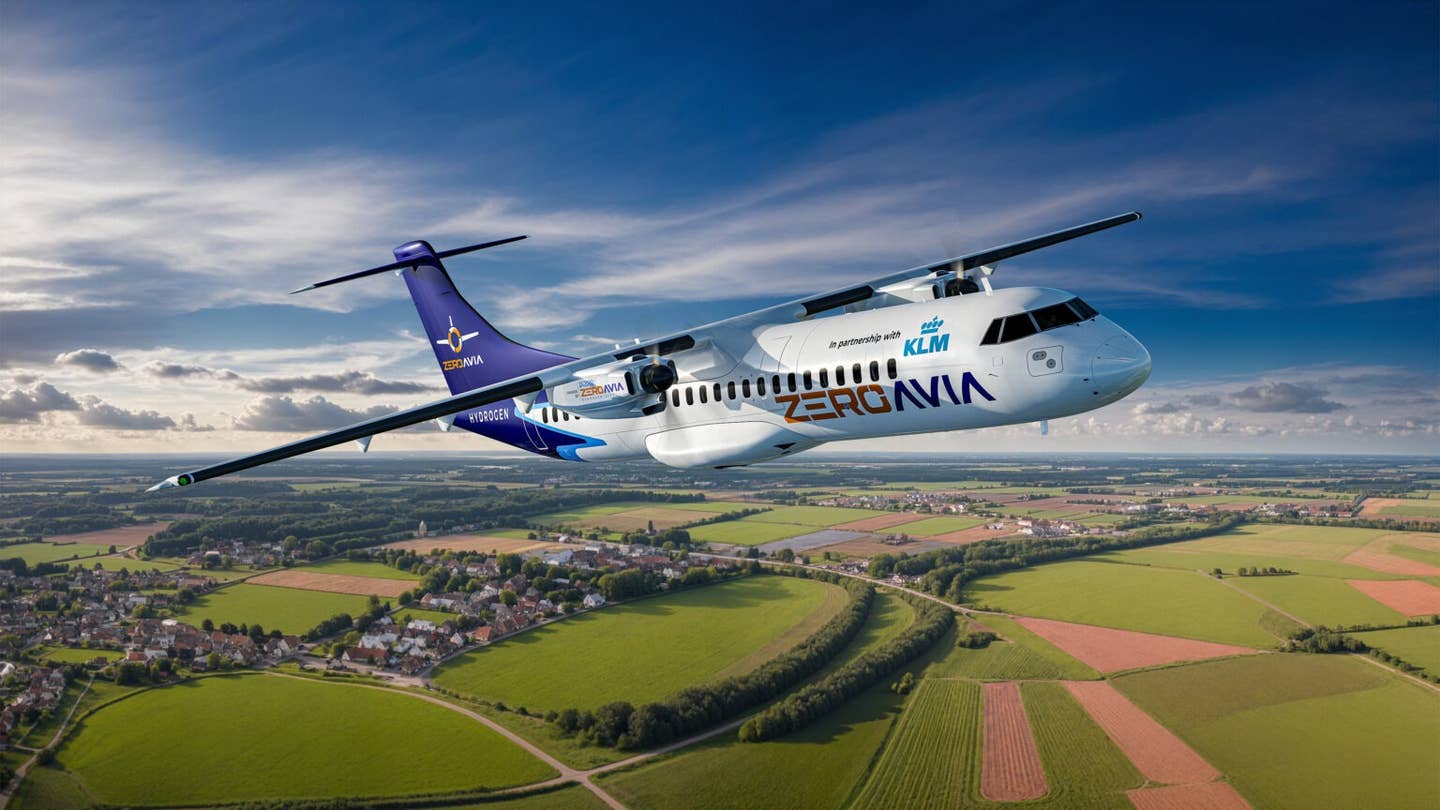BAE Systems, Embraer To Study eVTOL Defense Variant
Several potential uses will be explored by engineers in the U.K. and Brazil.

The study is expected to explore niche defense applications of Eve’s all-electric rotorcraft. [Courtesy: Eve Air Mobility]
BAE Systems and Embraer (NYSE:ERJ) are launching a new study to investigate the use of Eve Urban Air Mobility’s electric vertical takeoff and landing (eVTOL) aircraft in defense and security applications.
Future defense applications, however, would likely be constrained by technology, such as battery storage capacity, according to defense analysts.
The study, which will be conducted by engineers in both the U.K. and Brazil, is expected to explore niche defense applications of Eve’s all-electric rotorcraft currently under development for the urban air mobility market.
Some of the potential uses include personnel transportation, surveillance, humanitarian response, and reconnaissance, according to the companies, which tout the eVTOL concept as a cheaper, greener transportation alternative.
“Eve’s eVTOL could help to transform defense operations, whilst reducing their environmental impact—at a much lower operating cost than today’s platforms,” the companies said in a joint statement.
Questions Remain on Technology
Because the technology surrounding flight control and electric systems is only now being developed across the entire eVTOL industry, the potential military applications of eVTOL aircraft are unclear.
There are challenges about which type of battery will work best in various eVTOL aircraft—depending on the mission.
“The technology for eVTOLs is still under development, but flight control and electric systems technology may not be the main barriers—the batteries also need adequate storage capacity and the ability to generate sufficient power,” according to analysts in the Center for Strategic and International Studies’ (CSIS) Defense-Industrial Initiatives Group.
“There may be some missions where the technology will be available sooner, and others [anything that requires significant lift, for example] that are further out.”
The U.S. Department of Defense, for example, is currently evaluating eVTOLs for small-scale reconnaissance tasks using technology similar to that in commercial camera drones, as well as “drone swarms,” or small drones networked together, for kinetic and non-kinetic tasks, CSIS told FLYING in an email.
“Adequate power, sufficient battery storage capacity, and interoperability are key requirements,” CSIS added. “The supply chain would need to evolve to support the new technologies, as renewables are often not dependable enough for combat situations and create operational vulnerabilities.
“There may be some missions where the technology will be available sooner, and others [anything that requires significant lift, for example] that are further out.”
Analysts in the Center for Strategic and International Studies’ (CSIS) Defense-Industrial Initiatives Group
“Therefore, after each operational tasking, eVTOL batteries would likely need to be charged by fossil fuel powered generating stations. Having to do so puts additional strain on already complex logistics systems [due to additional equipment, personal, and fuel requirements]. These challenges have left DOD wary of relying on eVTOLs until there are substantial [several orders of magnitude] improvements in battery storage capacity.
“Bottom line is that if renewables are not available in operating locations, then fossil fuels will need to be burned to power the generators that recharge the batteries,” CSIS said.
Manufacturers have been testing rechargeable lithium-ion battery technology as well as hydrogen fuel cells to learn more about which types can provide the most power in the most efficient way while remaining as lightweight as possible.
Scientists have been trying to develop rechargeable batteries with higher energy density in watt-hours per kilogram, which is a key factor in propelling eVTOLs.
Another key factor on the battlefield will be recharging time: How long will it take to recharge military eVTOL batteries so the aircraft can be quickly turned around for new sorties?
If recharging time is an issue, engineers might choose to design a "plug-and-play" type of modular system that allows aircraft batteries to be quickly replaced to reduce turnaround time.
News of exploration of potential defense applications of Eve’s eVTOL comes as Embraer (NYSE:ERJ), the parent company of Eve Urban Air Mobility, announced a merger with special purpose acquisition company Zanite Acquisition Corp. The deal, sealed late last month, is a bid to scale up its eVTOL business. The merger valued Eve at $2.9 billion and is expected to close in the second quarter of 2022, placing the eVTOL manufacturer on the New York Stock Exchange.
BAE Systems has also invested $10 million into Eve.
“Bringing together Embraer’s innovative technology in the commercial sector with our extensive defence engineering and systems integration experience will help us to accelerate the pace of new innovations,” Ian Muldowney, chief operating officer for BAE Systems Air sector, said in a statement.

Subscribe to Our Newsletter
Get the latest FLYING stories delivered directly to your inbox






